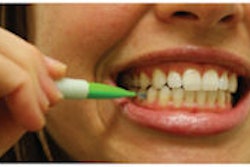The West Virginia University (WVU) School of Dentistry recently received a $2.8 million National Institutes of Health (NIH) grant to study oral health disparities in northern Appalachia, with particular emphasis on pregnant women and young children.
The five-year National Institute of Dental and Craniofacial Research (NIDCR) grant is the largest NIH grant made to the School of Dentistry, according to the university.
"In our previous study, children ages 2 to 5 had a much higher prevalence of cavities than the national average for this age group -- 144 times the national average," stated Richard Crout, D.M.D., Ph.D., associate dean for research and principal investigator, in a press release. "This new grant will give us the opportunity to study the early trajectory of oral disease from birth to age 2 years."
Dr. Crout's team will recruit 800 pregnant women in West Virginia and follow the mother and child until the child reaches the age of 2 years.
"Once we isolate the cause or causes, we can better implement oral disease prevention programs, hopefully reducing the oral health disparity in Appalachia," he said.
Through a joint collaboration, WVU and the University of Pittsburgh received a seven-year grant in 2002 from the NIDCR to investigate variables for oral health disparities. WVU and the University of Pittsburgh formed the Center for Oral Health Disparities in Appalachia to collaborate on this study.
In West Virginia, one-third of children by age 8 have untreated dental decay, while one-third of adults younger than age 35 have lost at least six permanent teeth. In addition, 44% of those age 65 and older have lost all of their teeth. The national average is 20%.
Copyright © 2010 DrBicuspid.com



















